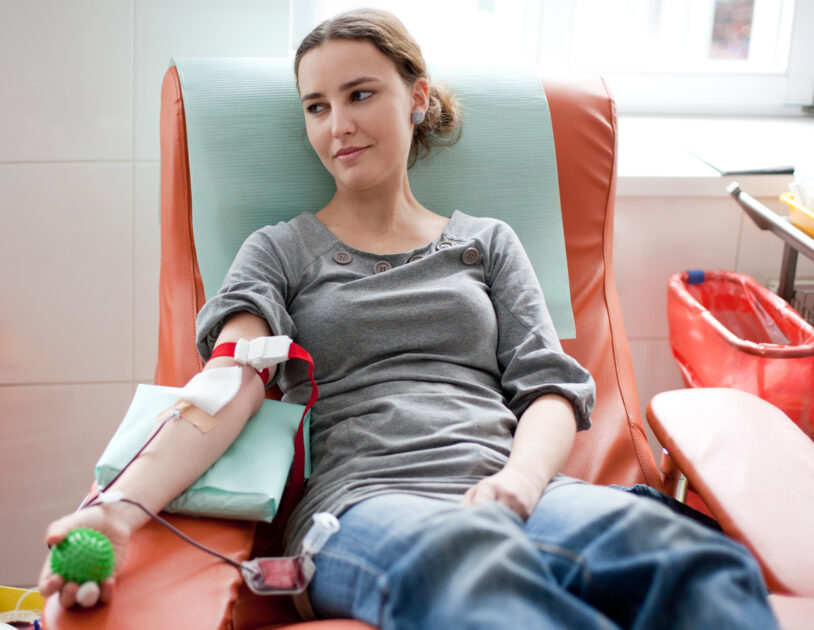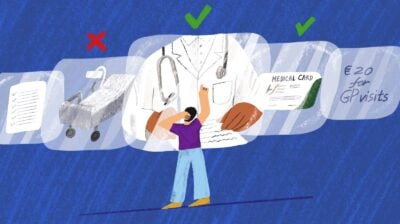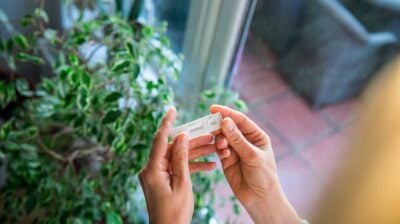How to become a blood donor
Find out how, why, and where to give blood

Blood donation involves donating a small amount of your blood to a blood transfusion service. In Ireland, the organisation that handles all blood donations is known as the Irish Blood Transfusion Service (IBTS).
If you are aged between 18-65 and are generally healthy you may be eligible to donate blood. When you donate blood it is screened for viruses and toxins. If your blood is considered safe, it is then transported to hospital blood banks.
Reasons to donate blood
There are a number of resons why people donate blood, and every person who chooses to donate may have a different reason.
You could save a life
Blood transfusions are lifesaving procedures, and hospitals need to have blood in supply when an emergency comes up. By donating blood, you could save someone’s life.
Your blood type may be in demand
It’s harder for hospitals to source rare blood types. O positive and A positive are the most common blood types in Ireland and AB negative is the least common.
It’s free to donate blood
It doesn’t cost anything to donate blood. You just need to make the time to go to the clinic to donate.
It’s a way of paying it forward
Some people who have benefited from blood donation like to give back to others.
It’s rewarding
Many people feel personally satisfied after donating blood.
Who can donate blood?
You can donate blood if:
- You weigh more than 50 kilograms (7 stone, 12 lbs)
- You are in good health and not sick at the time of donation
- You are aged 18 or over
- Your iron levels are good
The staff at the clinic will test your iron and will defer you if your iron is not high enough.
How can I find out if I am eligible?
You can take the eligibility quiz on the IBTS website to find out if you can donate blood.
Who is not eligible to donate blood?
- People under the age of 18
- People with low iron levels or anaemia
- People who recently had a cold or flu
- Men who have had sex with men within the last twelve months
- Former or current IV drug users
- People who are pregnant or who have been pregnant over the last twelve months
- People who have lived or travelled in the UK for a year or more between 1980–1996. This is due to the risk of VCJD, AKA ‘Mad Cow’ disease.
Find out more on giving blood here.
Before donating blood
Before you donate your blood, there are a few steps to follow to make sure things go smoothly, including:
- Eat something at least three hours before you donate
- Make sure to consume plenty of non alcoholic fluid before donating
- Avoid heavy exercise the day of your donation
- Make sure to allow 60-90 minutes for the entire process, for registration, donation, and recovery time
- If you are afraid of needles or worried about the process, let the staff know so that they can help ease your anxiety
What happens at the blood donation clinic?
Some people may be nervous about donating blood for the first time. Knowing what to expect at the blood donation clinic can make it easier.
Registration
When you arrive at the clinic you will be asked to register with the IBTS. This involves giving your name, address, date of birth and phone number.
Providing health information
A doctor or nurse will ask you about your general health, any medicines you are taking, and about your sexual and travel history. You will also be asked if you have ever had blood transfusions done.
Filling out a questionnaire
You will then fill in a health and lifestyle questionnaire. It is important to note that all information given to the IBTS is considered confidential.
Testing for iron levels and infections
The doctor or nurse will perform a quick test of your blood to check your iron level. If your iron level is too low, you will not be allowed to donate blood. You may also be asked to contact your doctor for further testing and treatment of anaemia.
You will need to give consent for your blood to be tested for HIV, AIDS and other infections.
Donating your blood
You will then be brought to one of the donation beds. A nurse will insert a needle attached to a blood bag into your arm. The blood will then flow out of the needle into the bag. The bag is kept out of sight, so that you don’t feel ill looking at the blood.
A nurse or doctor will keep an eye on you throughout the donation. You should let them know if you feel pain or are unwell in any way. The bag will take 8-15 minutes to fill up.
Removing the blood bag
Once the bag is full, a nurse will remove the needle and put a dressing on your arm. You will be asked to put pressure on the arm for 2-3 minutes.
Getting a drink at the canteen
You will need to rest for a while before going to the canteen. At the canteen you will get a drink and light refreshments.
Leaving the clinic
The IBTS recommends that you remain in the clinic for at least 15 minutes after your donation.
What to do if you feel unwell after donating blood
There are a few things the IBTS will ask of you after donating
Feeling unwell soon after donating
If you feel faint or unwell once you leave the clinic, you should sit or lie down and place your head between your knees. Try to rest for 30 minutes.
If you still do not feel well after this, call the National Blood Centre on 01 4322800 or the Munster Regional Transfusion Service on 021 4807419. These lines are staffed by qualified doctors 24 hours a day.
Becoming unwell within four weeks of donating
If you become unwell within 28 days of donating your blood, you must let the IBTS know. They will need to find out if this will have any consequences for the person who has or will receive your blood.
For more information on what to look out for after donating blood, click here.






